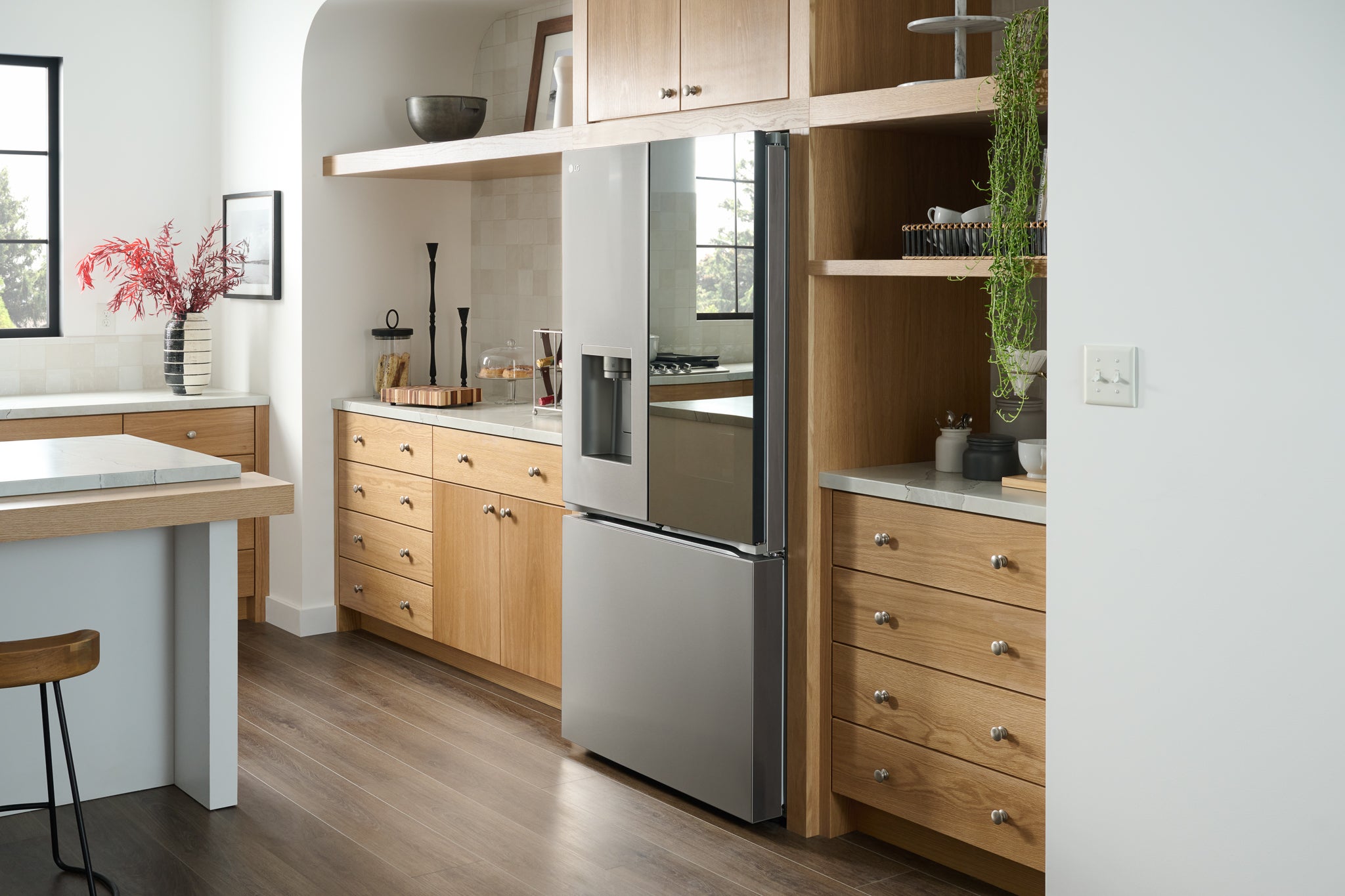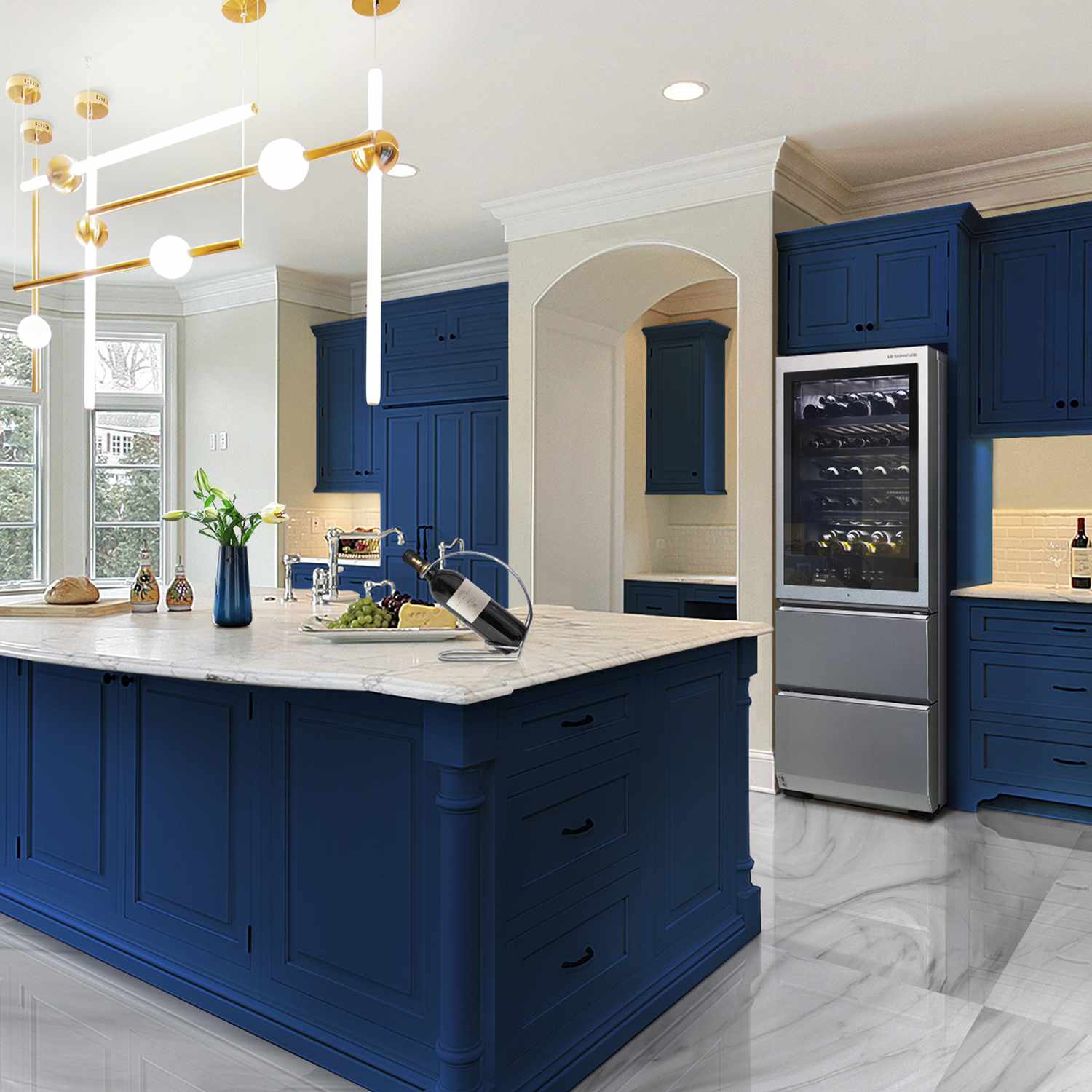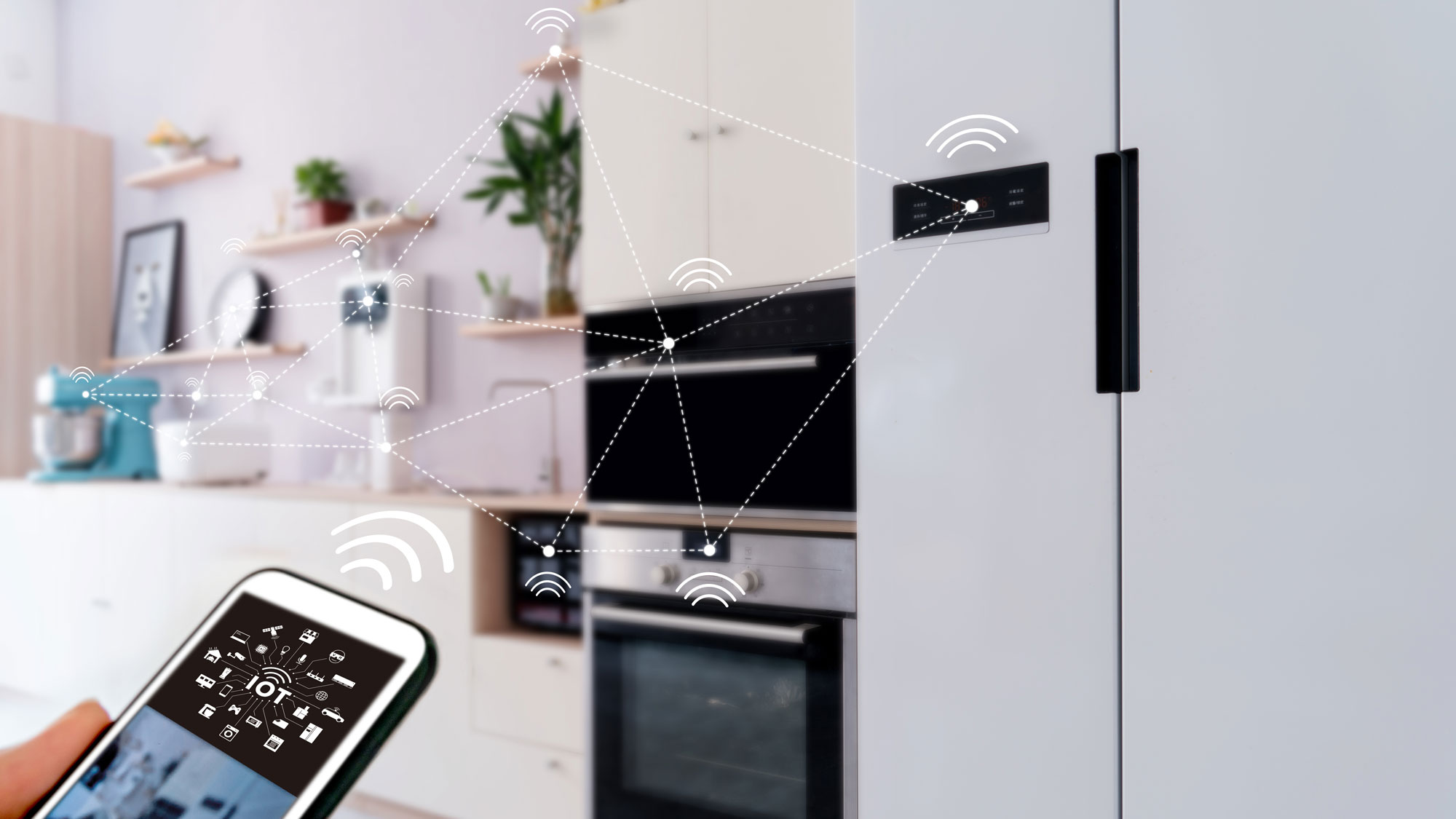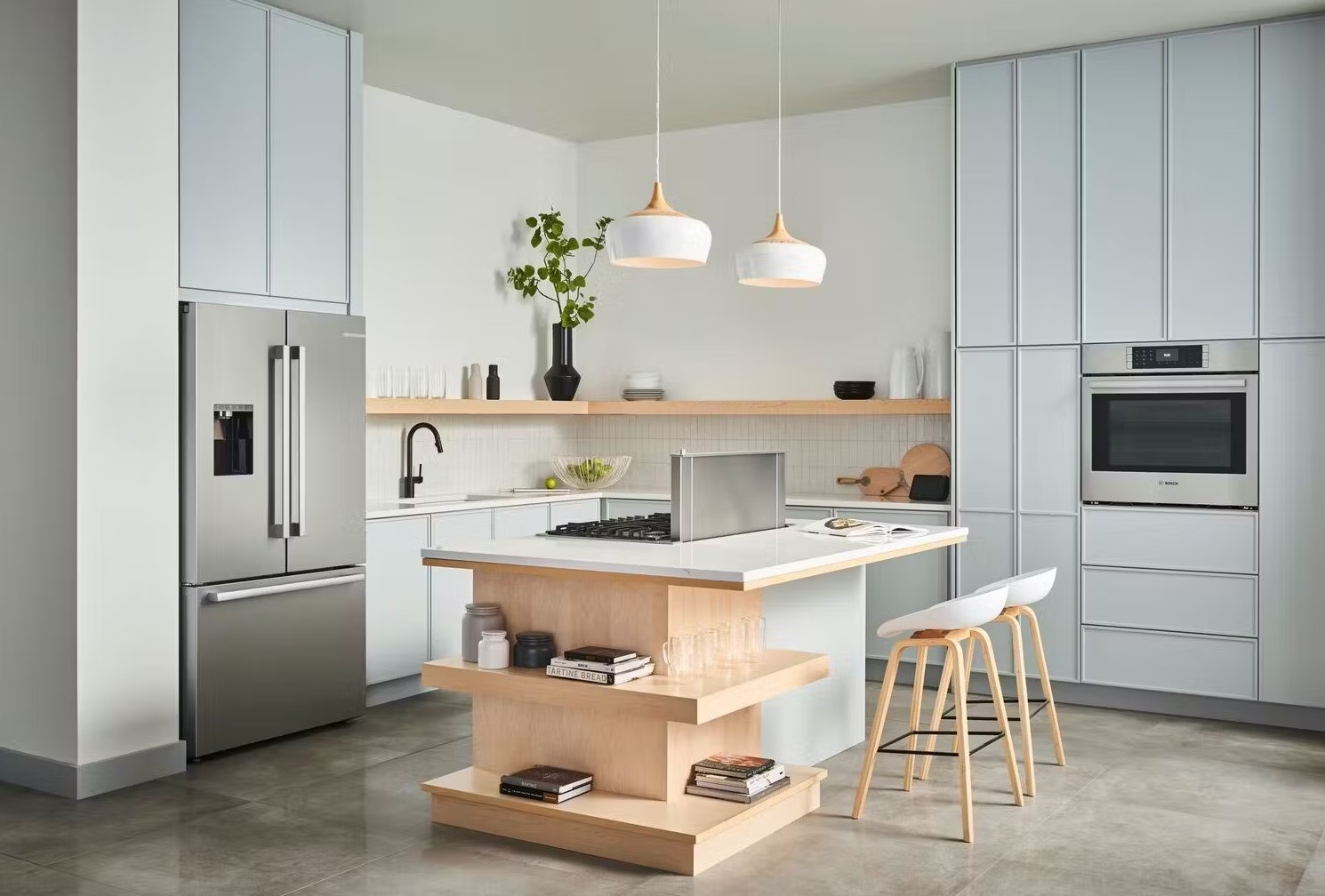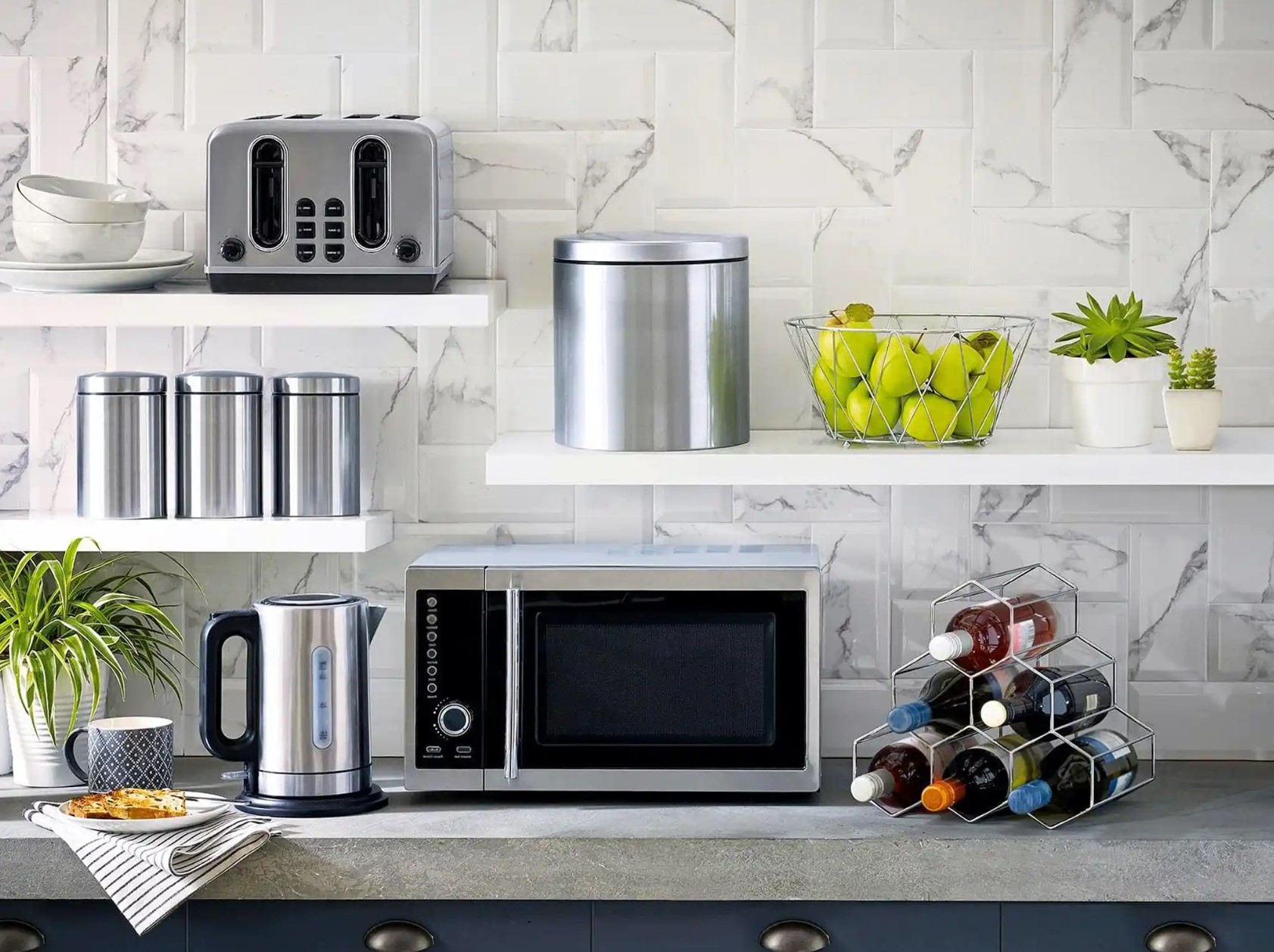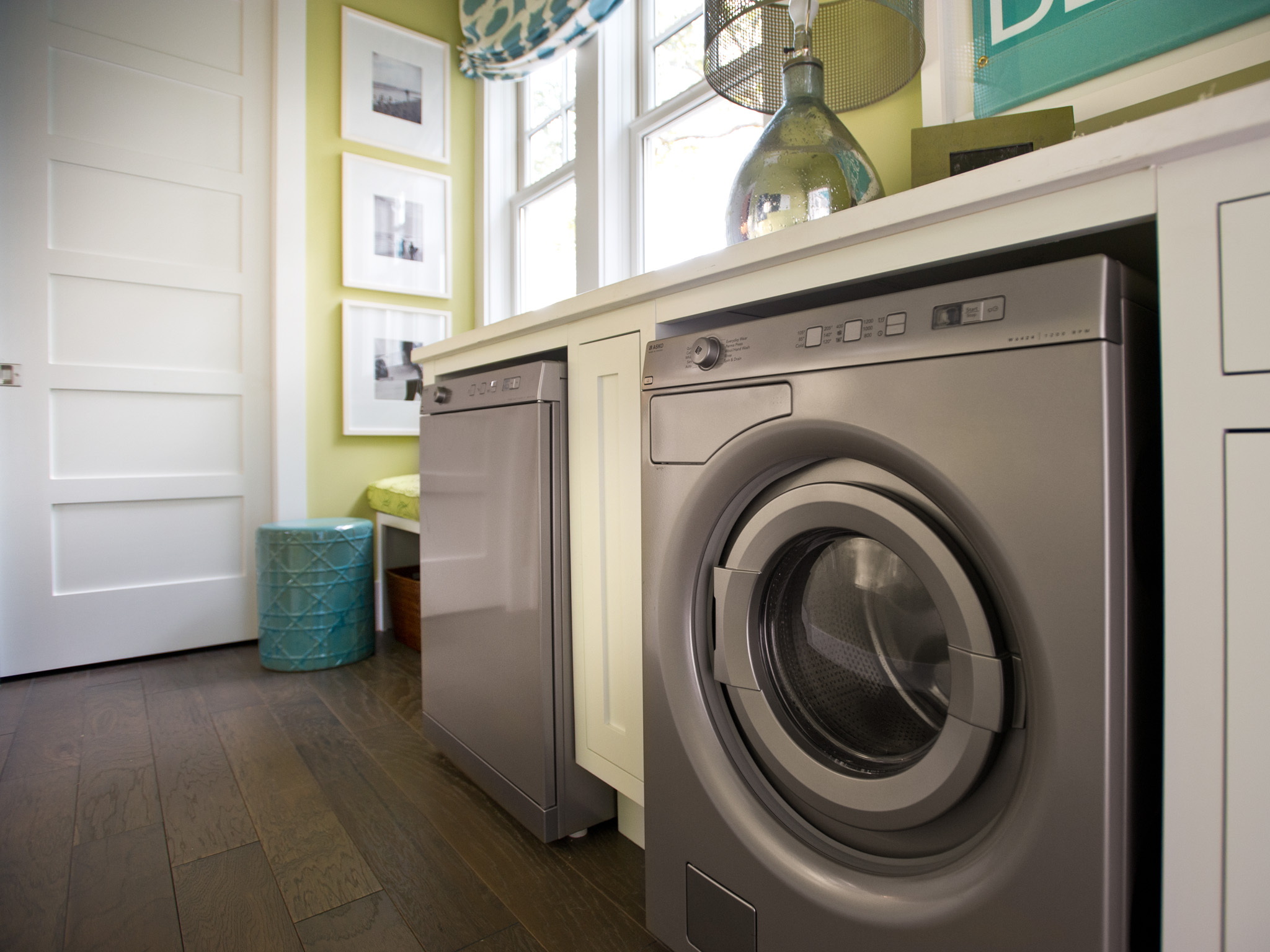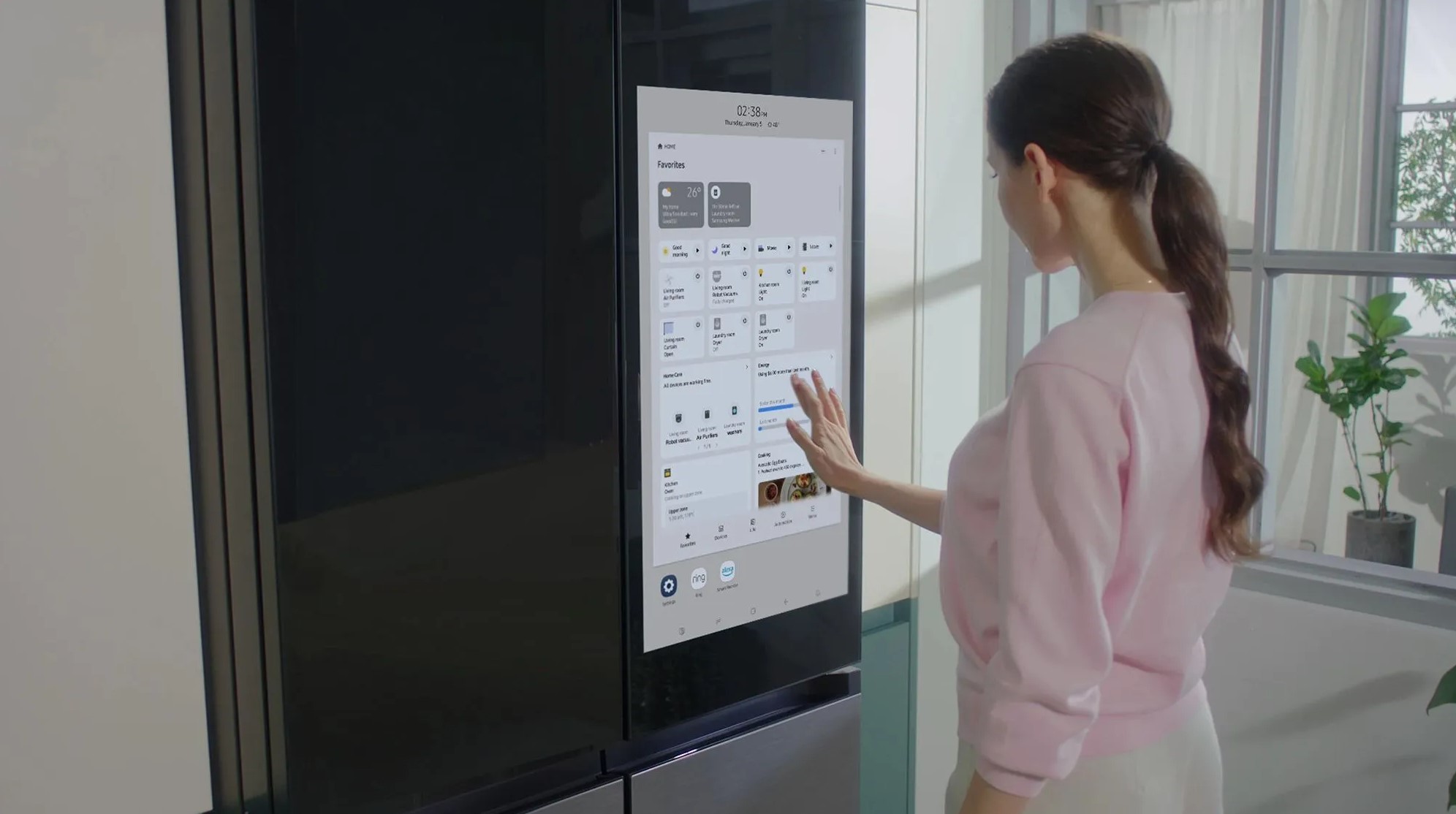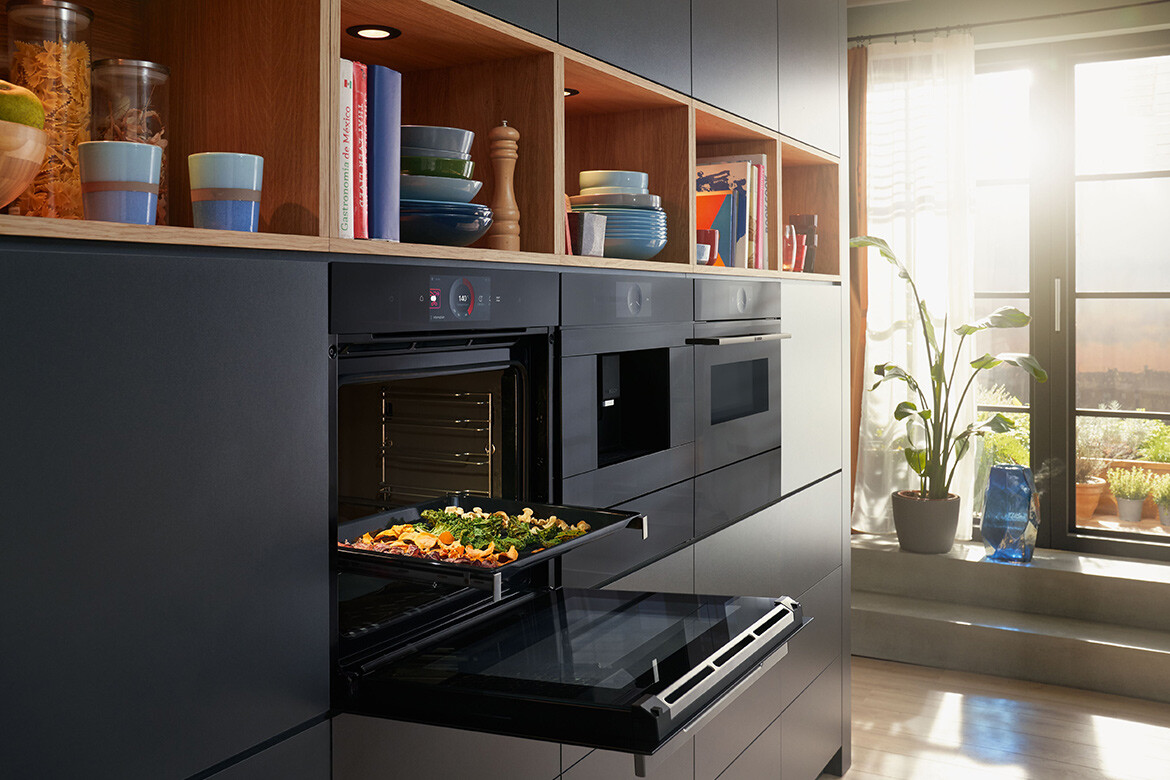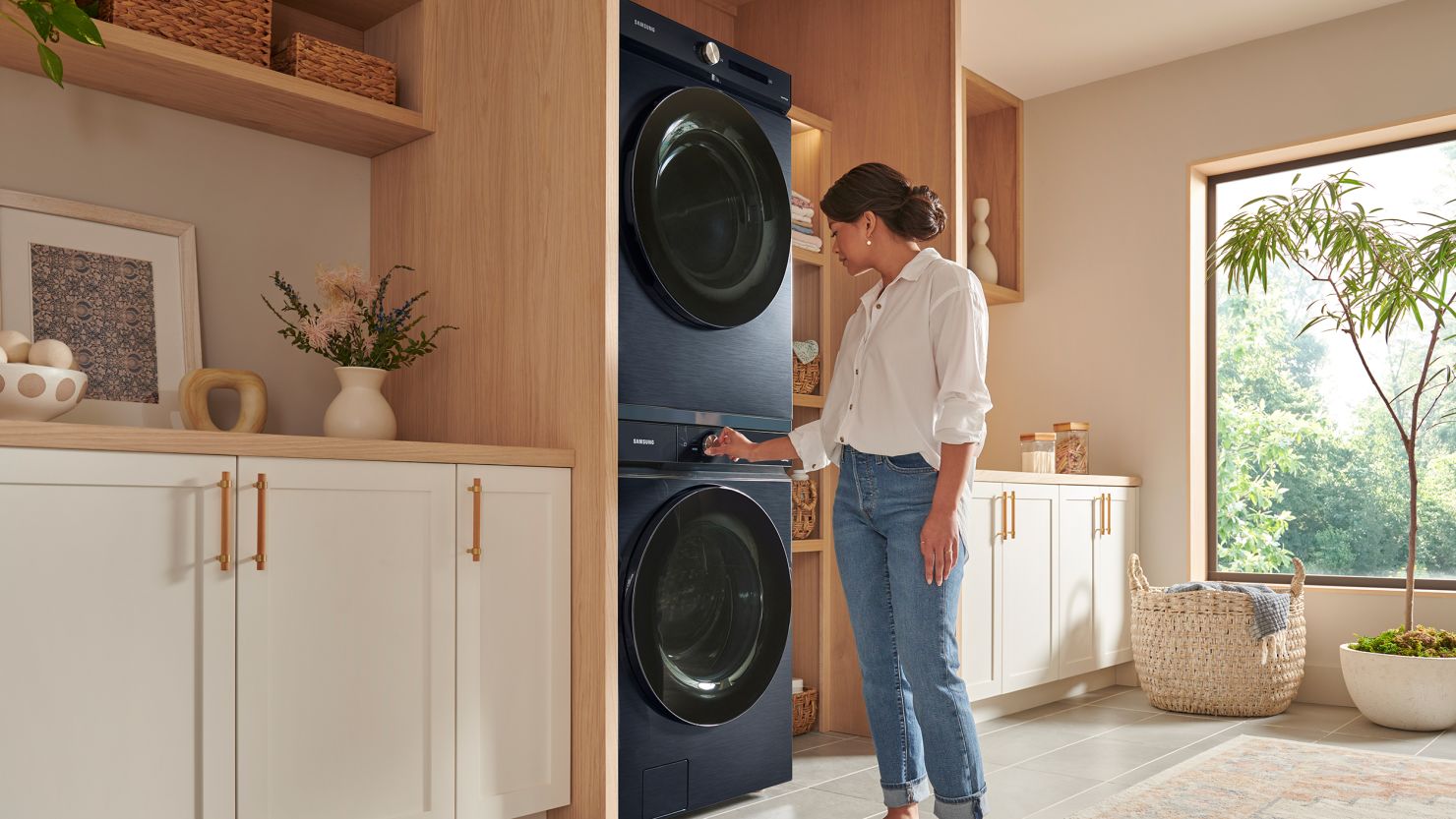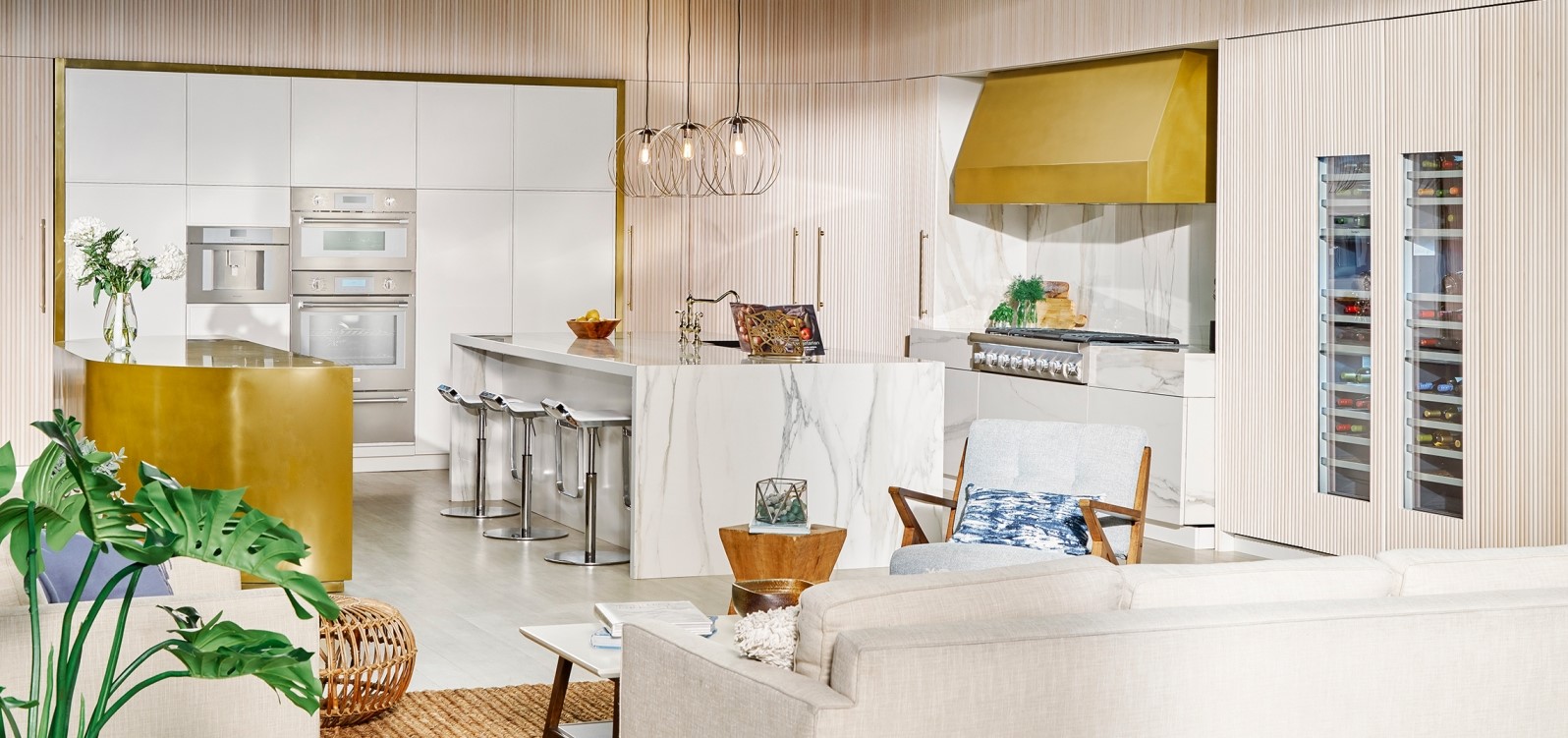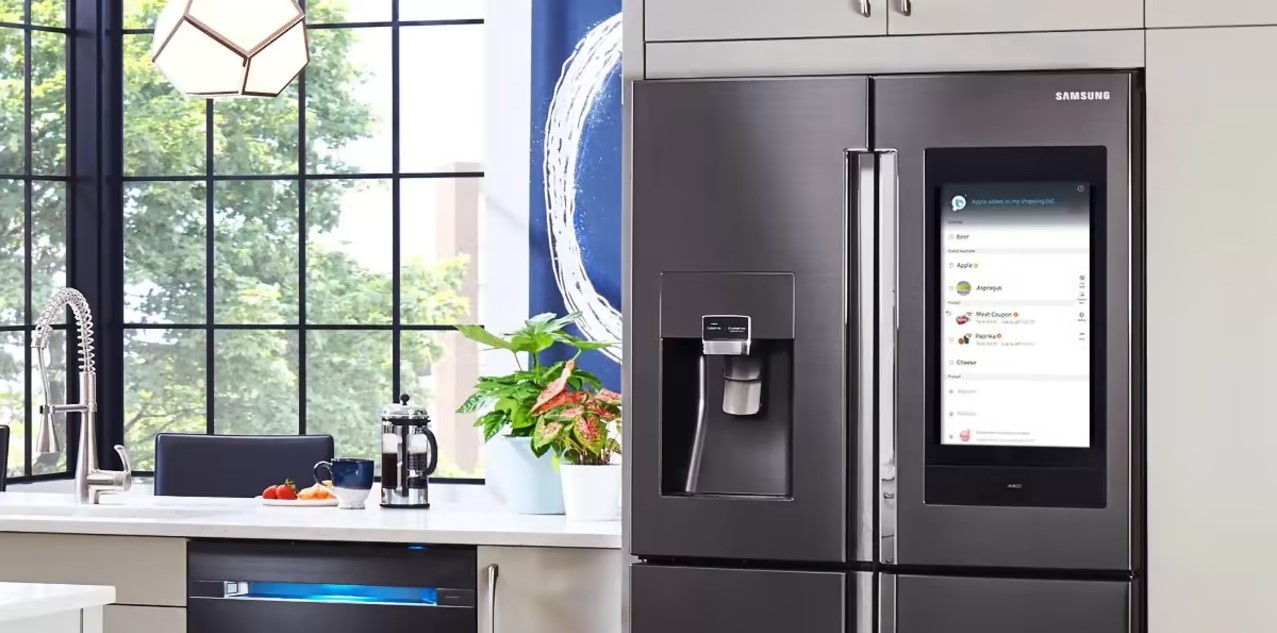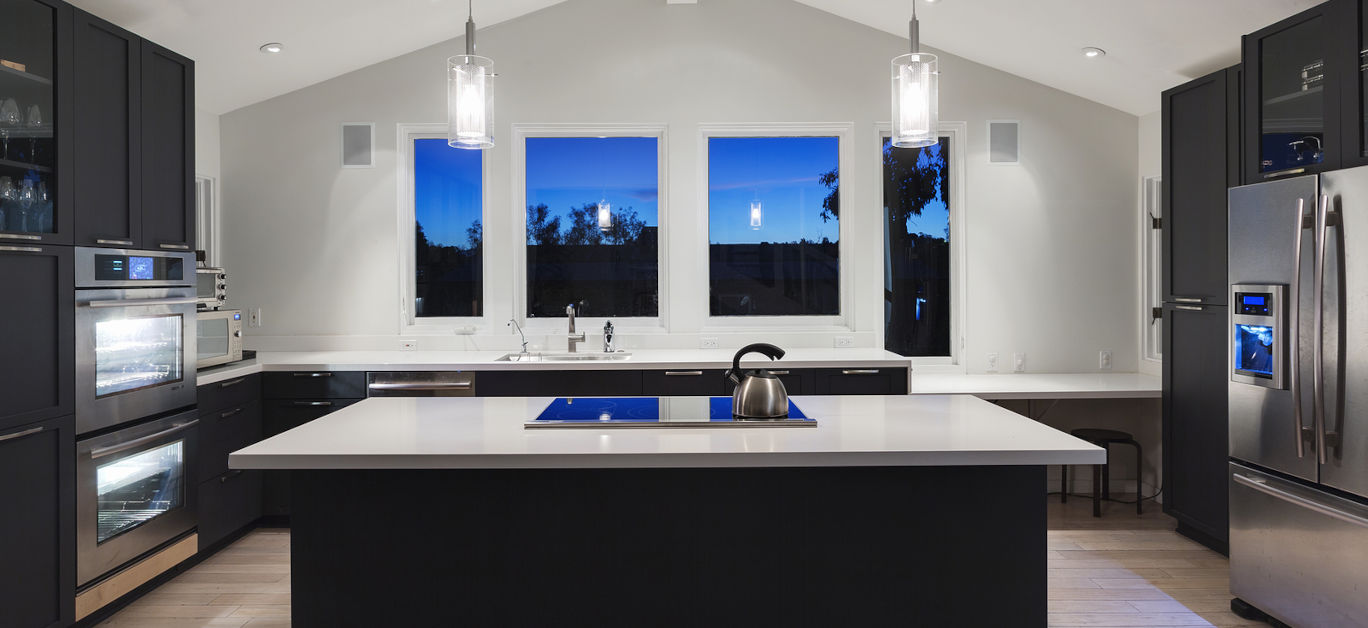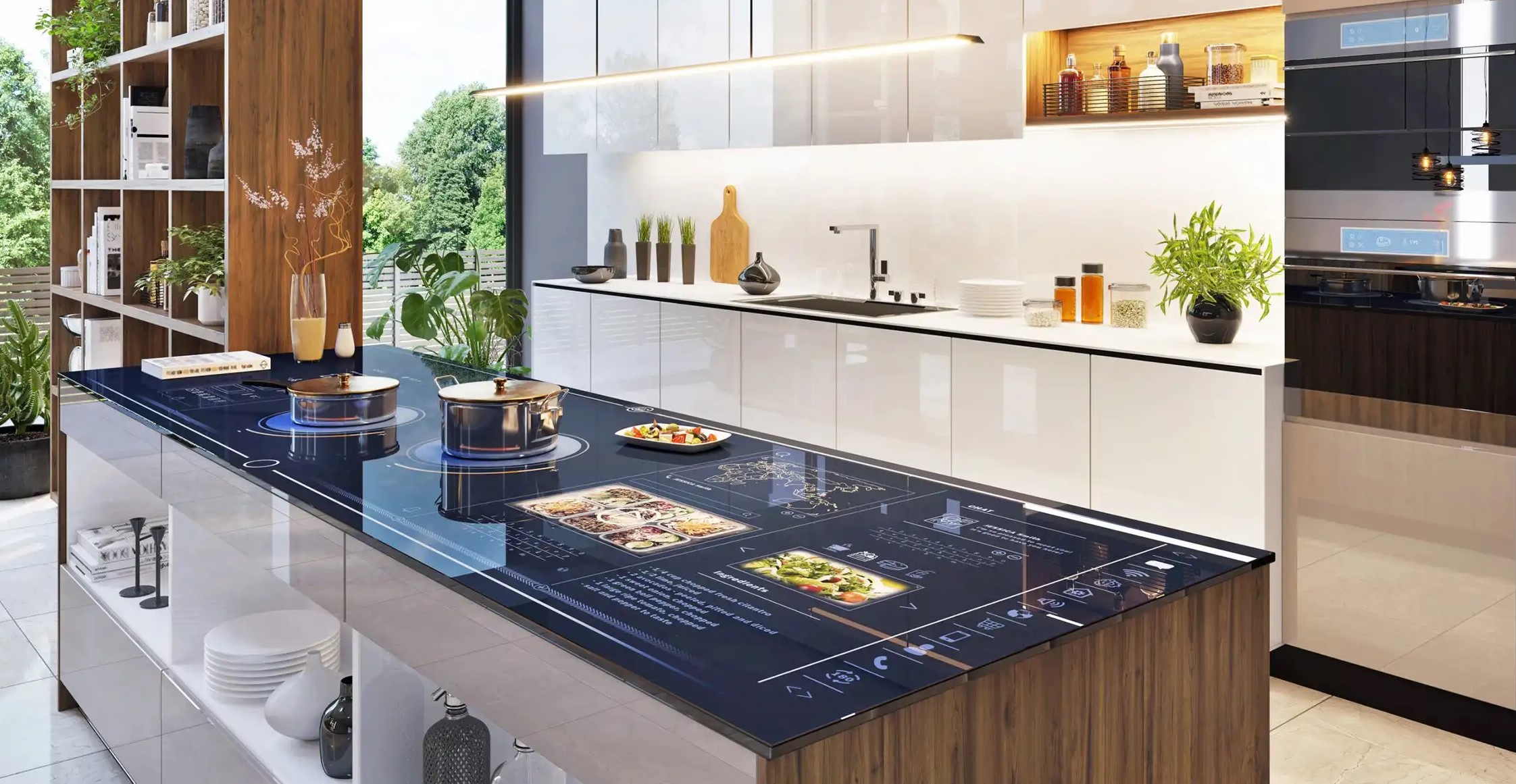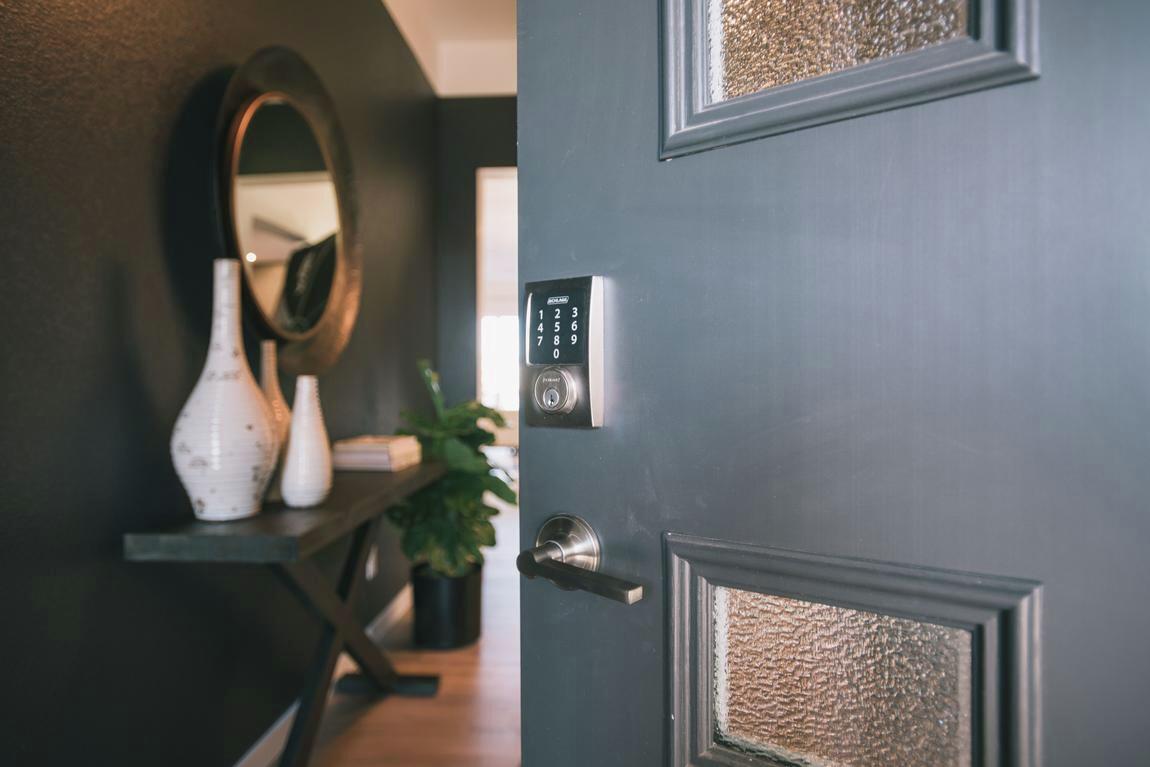• The Future Is Smart •
It seems like everything is smart these days. First phones were smart, then thermostats. Is it worth paying a premium for the convenience of asking your fridge, via text, if you’re out of milk?
Now you can buy smart lighting, smart locks, smart cameras, and even smart little sensors that tell you when there’s a water leak or a window is unlocked. Smart appliances have become increasingly popular in recent years with some surprisingly useful features, like mobile applications and better energy efficiency. Consider your usage habits to see if smart appliances are right for you.
What is a Smart Appliance?
Smart appliances feature integrated technology that allows them to:
- Connect to the internet
- Be controlled remotely
- Optimize energy efficiency
- Offer increased functionality
In a nutshell, you can set smart appliances to do specific tasks and control them from your smartphone — even when you’re not home. From your refrigerator ordering groceries to your oven preheating while you’re on your way home, these smart appliances are designed to help you run your household from wherever you are.
What Makes Appliances Smart?
So-called smart devices are named this because they offer functionality beyond what you would receive from an offline version of the same device. Smartphones run appliance apps and feature options such as Wi-Fi, Bluetooth, and NFC payment options like Apple Pay or Google Wallet.
Smart thermostats are programmable and read temperature data from multiple sensors to create a more comfortable environment throughout the whole home. This same logic applies to smart appliances: They do things that your average appliances can’t.
Key Benefits of Smart Appliances
There’s a reason smart appliances have gained popularity — and it’s not novelty alone. Just as traditional appliances revolutionized home life in the past, smart appliances are making life easier and better today:
- Connectivity saves time and streamlines tasks
When you can automate tasks and control your appliances remotely, you get to spend more time living and less time pressing buttons. - Energy efficiency is front and center
You can set up your smart appliances to optimize energy consumption and you have increased control over when they run. This can help lower energy costs in both the short- and long-term. - Advanced features mean better functionality
Smart appliances aren’t just special because they’re connected to the internet. They’re also top-of-the-line machines that have even more options and features than ever before.
Here are some examples of smart appliances you can currently purchase and a few highlights on their efficiencies:
Smart Microwaves
There are a few different options available when it comes to smart microwaves. Some units can estimate the necessary cook time for exactly what food you’re heating up. You can also find smart microwaves that adjust their intensity automatically based on how well their contents are cooking, helping prevent the dry rubbery texture that often comes from microwaving. Many smart microwaves can be controlled over Wi-Fi from your smartphone, and some even interface with virtual assistants like Google Assistant or Amazon’s Alexa to allow voice commands as well.
Smart Washers & Dryers
Smart washers and dryers are focused on saving you money by adjusting settings like water level and dryer heat, based on the size of your load, to reduce energy costs. The ability to check cycle status and start (or stop) a wash/dry cycle from your smartphone is also a popular feature that makes it easy for you to do laundry without coming back to check periodically to see if it’s still running. In many cases, the washer or dryer will even send an alert to your phone at the end of the cycle so that you know exactly when your clothes are done.
Smart Refrigerators
Energy efficiency is a top priority for smart refrigerators as well. They measure internal temperatures more accurately and work through cooling cycles more efficiently, as smart refrigerators are designed to maintain a consistent internal temperature by reducing how often you open the door.
A video screen in the door can be activated to turn on inside lights where a camera shows you exactly what’s on the shelves. Depending on the model, these images can even be sent to a smartphone or accessed via an app so that you can get a clear view of what’s in the fridge while you’re out shopping at the grocery store.
The Future Is Smart
Of course, these are only a few of the smart appliance options available. Smart air filtration systems, ice makers, blenders & more are available to help make your appliances more efficient and easier to manage. You can even get a Wi-Fi-enabled version of your Instant Pot to control what you’re cooking, regardless of whether you’re in the kitchen or not. As these small appliances and larger smart appliances such as ovens and refrigerators become more common, expect even more integrated versions of these smart appliances moving into the future.
Getting Smart Your Way
Advances in modern technology are moving faster than ever before, and our homes are no exception. Smart appliances are becoming more common and are primed to be the gold standard in the home appliance market. If you’re ready to smarten up your home with some new appliances but aren’t sure where to start, let Compass help recommend a professional showroom that can match you with the smart appliances you need.
Compass is on the cutting edge of this smart home appliance revolution. We’re here to help explain the nuances of smart appliances and offer expert recommendations for homeowners in San Diego. Reach out here to ask about smart home appliances recommended by local people you know, like, and trust.
Pros & Cons of Smart Appliances
When new technology hits the market, are you the first in line to buy it? Some people have a penchant for the latest bells and whistles, while others are more comfortable taking a wait-and-see approach. What about smart appliances for your kitchen and laundry areas? Some homeowners are enamored with the thought of adding these devices to their internet-connected homes. Others aren’t convinced they’re ready to spend big bucks for features they may not use.
If you’re thinking about investing in smart appliances for your kitchen, consider these advantages and disadvantages as you weigh the options:
Advantages of Smart Appliances
- Smart appliances cut your electric bill
Some equipment can calculate energy rates and schedule high-energy-use activities for low-energy-cost times of the day. For example, loads of laundry can be run when electricity rates are lowest, and integrated sensors can optimize drying times. - They look cool
The fancy cutting-edge appearance of these appliances, including backlit touch screens, is particularly attractive to tech-loving homeowners and those with a taste for cutting-edge, modern home decor. - Upgraded laundry cycles
Smart washers & dryers aren’t quite like the Jetsons yet able to sort, fold, and hang your laundry. They do, however, offer other attractive attributes, like notifying you when loads are complete. Smart washing machines can tell you if you’re running low on detergent and even order more online. Smart dryers can let you know when the vent needs to be cleaned, to avoid fire hazards from lint clogs. - Kitchens are more accessible
New flexible refrigerators can change cooling sections from refrigeration to freezing and back again, depending on your changing needs. Find a sale on ice cream, but your freezer is full? No problem! You can also see what’s currently in your fridge while shopping. Or, do you want your stove to defrost and cook dinner and keep it warm until you arrive home? It’s possible.
Disadvantages of Smart Appliances
- Smart appliances cost more money
In addition to higher purchase prices, they often require more repairs than mechanical versions of the same machines. According to Angie’s List, those repairs can be 50 to 100 percent more expensive. - They pose data privacy risks
Smart home appliances may not utilize reliable internet security protocols, giving hackers a pathway to access other connected devices in your home. Also, the more data that these devices are collecting about you, your habits, and your home, the more that data could be vulnerable. - Firmware issues or tech hiccups
Manufacturers may not provide timely firmware updates, which means an appliance may no longer integrate with other devices, like a smart home hub and voice-activated controllers. It’s also easier for hackers to access devices that aren’t kept up-to-date and secure. - No internet means offline appliances
If your smart appliances can’t connect to the internet, they are no longer smart. Before buying, be sure to check reviews for individual products and how they operate in offline mode – as well as the manufacturer’s customer service ratings.
To Buy or Not To Buy?
Maintenance and repair costs can add up to more than your energy savings. What is the most common point of failure? The computer controller board, according to San Diego appliance repair professionals. Before buying new smart appliances, ask yourself what features you will use.
If you want smart appliances without substantial sticker shock, hold off a bit longer. According to a recent forecast by Juniper Research, the average cost of integrated smart home appliances is expected to drop over the next three years. If you are a technology lover, it may be worth every cent to have your home fully connected to the internet. But if you just want your major appliances to do their job without anything extra, then smart kitchen and laundry equipment may not be your best choice – yet.
Sources:
https://app.homekeepr.com/portia-green/blog/alexa-am-i-out-of-milk-smart-appliances-101
https://www.allbrandsappliances.net/smart-appliances-101-what-they-are-and-why-you-need-them/
https://homebuying.realtor/content/pros-and-cons-smart-kitchen-and-laundry-appliances

